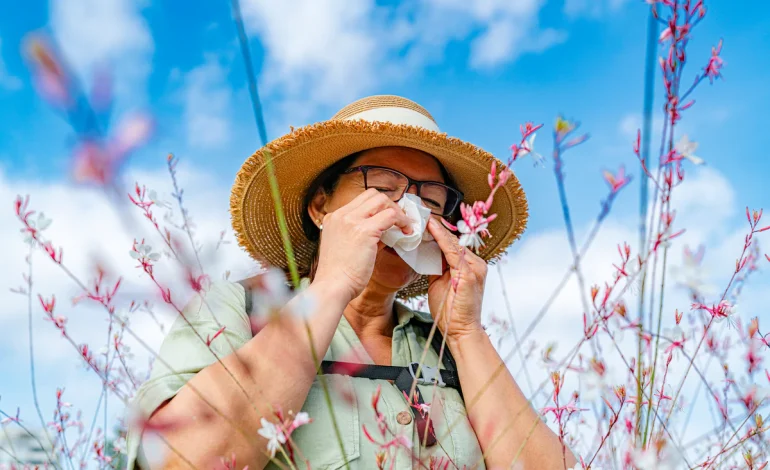Seasonal allergies, also known as hay fever or allergic rhinitis, affect about a quarter of US adults, the Washington Post reports.
These allergies occur when the immune system reacts to airborne pollen, leading to symptoms such as sneezing, congestion, and itchy, watery eyes. As warmer temperatures bring longer pollen seasons, allergy sufferers may find themselves dealing with symptoms for extended periods.
However, experts say there are ways to manage allergies effectively and reduce discomfort.
Taking allergy medication before pollen counts rise can help prevent symptoms before they start. Allergists recommend starting treatments, such as nasal steroid sprays, a few weeks before peak allergy season. Dr. Zachary Rubin, an allergist in Chicago, suggests patients begin medication as early as mid-February to get ahead of spring allergies.
There are three main types of pollen that cause seasonal allergies:
Tree pollen (common in early spring)
Grass pollen (prevalent in early summer)
Weed pollen (more common in late summer and fall)
The specific pollen type and allergy season can vary depending on location. An allergist can perform blood or skin tests to determine which pollen types are causing symptoms. Monitoring local pollen counts can also help allergy sufferers prepare for peak allergy days.
The most effective way to manage seasonal allergies is to minimize exposure and use appropriate treatments.
Avoidance Strategies:
Keep windows closed when pollen counts are high.
Use an air purifier indoors.
Change clothes and shower after spending time outside.
Avoid outdoor activities like yard work on high-pollen days.
Medications:
Nasal steroid sprays: These are considered one of the most effective treatments because they directly target nasal inflammation. However, they need to be used consistently for best results.
Antihistamines: Available in both pill and spray form, these help with sneezing, runny nose, and itchy eyes.
Saline sprays or rinses: These help flush out allergens from the nasal passages.
Leukotriene receptor antagonists (such as Singulair): These prescription medications can help with nasal congestion and respiratory symptoms.
Allergy shots (immunotherapy): This long-term treatment involves receiving small doses of allergens to build immunity over time. Patients typically see improvement within the first year, with potential long-term relief after completing the treatment course.
Decongestant sprays, such as Afrin, provide temporary relief by shrinking swollen nasal tissues. However, overuse can lead to “rebound congestion,” where the nose becomes more congested once the medication wears off. Experts recommend using these sprays for no more than three days in a row.
Common Myths About Seasonal Allergies
Does local honey help? No scientific evidence supports the idea that consuming local honey can relieve allergy symptoms. The pollen that triggers allergies is airborne, while honey contains pollen from insect-pollinated plants, which typically do not cause allergic reactions.
Can adults develop seasonal allergies? Yes, allergies can develop at any age. Some adults experience new allergies due to changes in the immune system after viral infections or life events like pregnancy.
Is it a cold or allergies? Unlike colds, allergies do not cause fevers. Colds and other respiratory infections tend to resolve within a week or two, whereas allergies persist as long as pollen exposure continues.










The latest news in your social feeds
Subscribe to our social media platforms to stay tuned